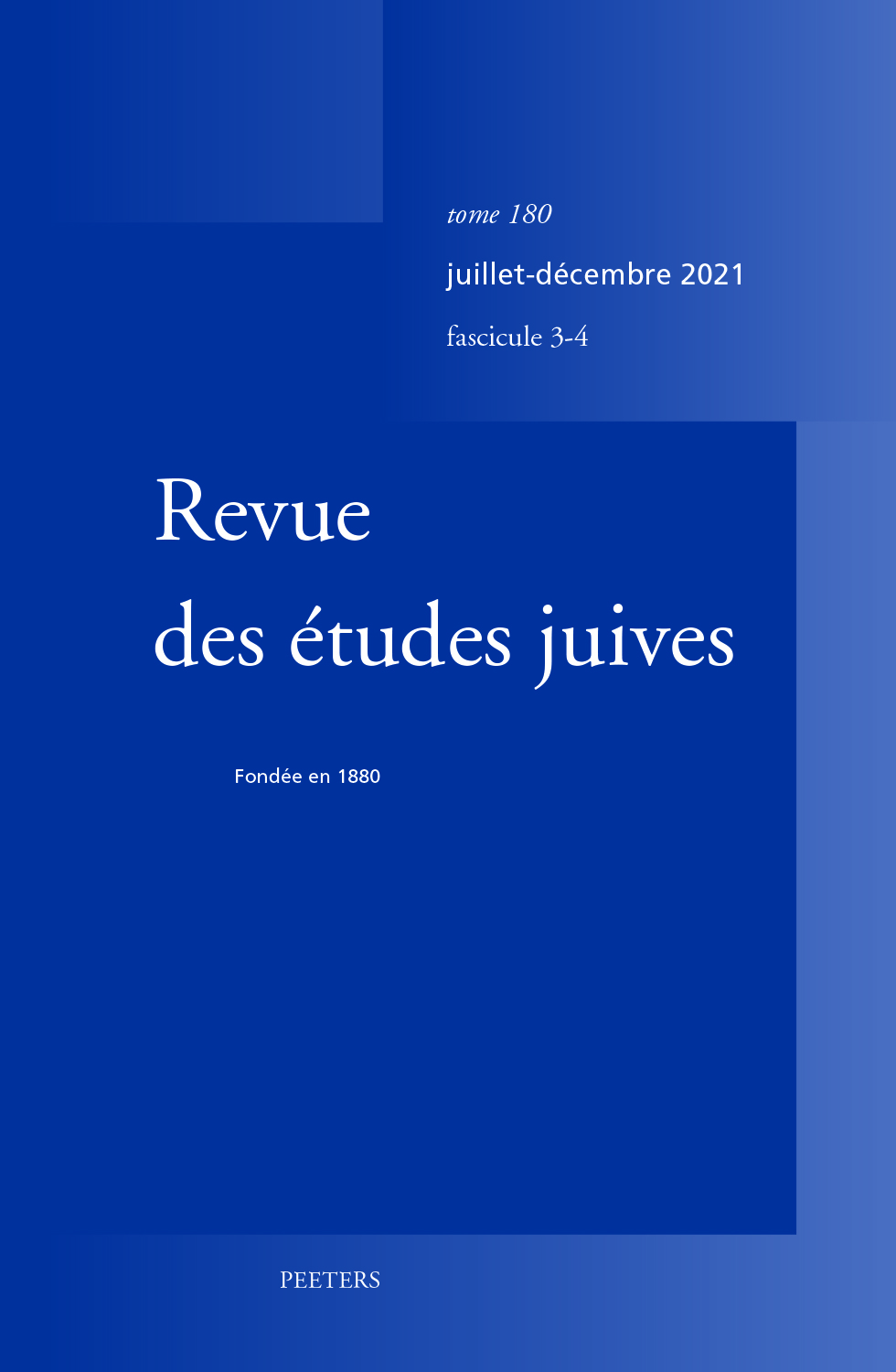next article in this issue  |

Preview first page |
Document Details : Title: Agrippa I and the Judeans of Alexandria in the Wake of the Violence in 38 CE Author(s): KERKESLAGER, Allen Journal: Revue des Études Juives Volume: 168 Issue: 1-2 Date: janvier-juin 2009 Pages: 1-49 DOI: 10.2143/REJ.168.1.2035300 Abstract : This study argues that the Judean king Agrippa I can no longer be viewed as a champion for the Judeans of Alexandria. After his visit to the city in 38 CE, Agrippa's behavior repeatedly reveals an effort to avoid incrimination in the violence that had erupted during his visit. This is apparent from Philo's In Flaccum and Legatio ad Gaium, the lawsuit of Isidoros in the Acts of the Alexandrians, the papyrus letter of Claudius to the Alexandrians (P. Lond. 6.1912 = CPJ 2.153), the works of Josephus, and other sources. Analysis of these sources proceeds in order of the events, beginning with Agrippa's visit to Alexandria in 38 and ending with the possible influence of Agrippa and other Herodians on the composition and copying of Philo's descriptions of the violence in 38. At every stage, Agrippa betrayed far more interest in the security of his status in the Roman administration than the plight of the Judeans of Alexandria. This conclusion may help resolve numerous questions related to the violence in 38, such as the nature of the charges brought against the Roman governor Flaccus. Le roi de Judée Agrippa Ier, ne peut plus être considéré comme un avocat des Judéens d’Alexandrie. Après sa visite à la ville en 38 de l’ère commune, le comportement d’Agrippa révèle à plusieurs reprises la volonté de se disculper de la violence qui avait éclaté pendant sa visite. Cela resort d'In Flaccum et Legatio ad Caium de Philon d’Alexandrie, du procès d’Isidoros dans les Actes des Alexandrins, de la lettre de Claudius aux Alexandrins (P. Lond. 6.1912 = CPJ 2.153), des oeuvres de Flavius Josèphe et d’autres sources. L’analyse de ces sources procède chronologiquement, à partir de la visite d’Agrippa à Alexandrie en 38. Suit une discussion du rôle éventuel d’Agrippa et d’autres Hérodiens dans la composition et la description des violences par Philon. À chaque étape, Agrippa montra qu’il se préoccupe davantage de conforter sa position dans l’administration romaine que du sort des Judéens d’Alexandrie. Cette conclusion pourrait résoudre plusieurs questions liées aux événements de 38, telle la nature des accusations portées contre le gouverneur romain, Flaccus. |
|


